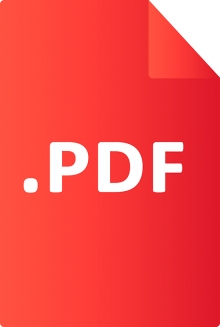uk-UA
en-GB
Інтерактивні методи навчання іноземних мов у закладах вищої освіти
Новак Ілона Милославівна
У статті здійснено семантичне уточнення й емпіричну інтерпретацію інтерактивних методів навчання іноземних мов студентів у закладах вищої освіти. Обґрунтовано актуальність застосування інтерактивних методів у контексті світових тенденцій щодо методів і технологій навчання згідно з концепцією «Освіта 4.0». Проаналізовано наукові та навчально-методичні праці вітчизняних і зарубіжних учених, у яких розкриваються науково-методологічні засади інтерактивних методів навчання та специфіки їх застосування в процесі викладання іноземної мови студентам. Узагальнено іноземний і вітчизняний досвід використання інтерактивних методів у викладанні англійської мови. На основі аналізу власного педагогічного досвіду конкретизовано специфіку застосування симуляцій у навчанні іноземної мови студентів за їхнім фаховим спрямуванням. Виявлено відмінності симуляцій і рольових ігор. Уточнено, що симуляції відтворюють ситуації та проблеми, пов’язані зі сферою професійної діяльності, мають бути максимально наближеними до реальних умов, визначаються комунікативним завданням або проблемою, які вимагають особистісного ставлення студентів до фактів і подій. На прикладах розкрито та деталізовано методику підготовки, проведення й обговорення результатів симуляцій. Визначено та класифіковано веб-квести як інтерактивний метод навчання іноземної мови. Розглянуто різні типи веб-квестів залежно від навчального завдання: есе-переказ - подання матеріалів на задану тему з різних інформаційних джерел у новому форматі; квест-компіляція – віртуальний музей, портфоліо, мультимедійна колекція; проектування – розробка навчального проекту на основі заданих умов; аналітичне завдання – пошук і систематизація інформації у вигляді колекції, енциклопедії, каталогу, хрестоматії, маршруту; електронної дошки оголошень. Наведено основні вимоги до методичного супроводу веб-квесту на прикладі підготовки та презентації проекту на тему «Відкриття нового ресторану». Установлено, що застосування інтерактивних методів збагачує методичний досвід викладача, спонукає до пошуку креативних ідей і їх утілення в навчальний процес.
Ключові слова: інтерактивні методи, навчання іноземних мов, заклади вищої освіти, симуляції, веб-квести.
Interactive methods of teaching foreign languages in higher education institutions
Ilona Novak
The article provides semantic clarification and empirical interpretation of interactive methods of teaching foreign languages to students in higher education institutions. The relevance of the use of interactive methods in the context of global trends in teaching methods and technologies according to the concept of “Education 4.0” is substantiated. Scientific and educational-methodical works of domestic and foreign scientists are analysed, in which scientific- methodological bases of interactive teaching methods and specifics of their application in the process of teaching a foreign language to students are revealed. The foreign and domestic experience of application of interactive methods in teaching English is generalized. Based on the analysis of their own pedagogical experience, the specifics of the use of simulations in teaching foreign languages to students in their professional field are specified. Differences between simulations and role-playing games are revealed. It is specified that the simulations reproduce situations and problems related to the field of professional activity, should be as close as possible to real conditions, and are determined by a communicative task or problem that requires a personal attitude of students to the facts and events. The methods of preparation, conducting and discussion of simulation results are revealed and detailed on the examples. Web quests are defined and classified as an interactive method of learning a foreign language. Different types of web-quests are considered depending on the educational task: essay-translation – submission of materials on a given topic from different information sources in a new format; quest-compilation – virtual museum, portfolio, multimedia collection; design – development of the educational project on the basis of the set conditions; analytical task – search and systematization of information in the form of a collection, encyclopaedia, catalogue, textbook, route; electronic bulletin board. The main requirements to the methodological support of the web-quest are given on the example of preparation and presentation of the project on the topic “Opening a new restaurant”. It is established that the use of interactive methods enriches the methodological experience of the teacher, encourages the search for creative ideas and their implementation in the learning process.
Keywords: interactive methods, foreign language teaching, higher education institutions, simulations, web-quests.

